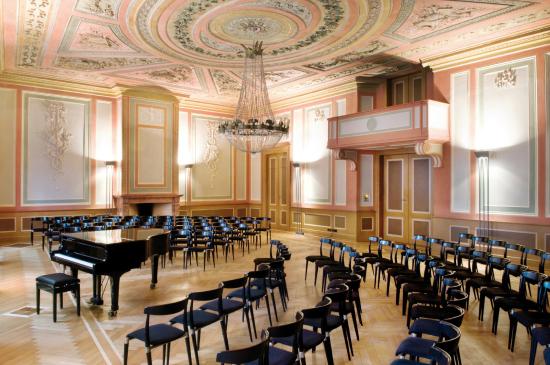When will the skills shortage reach music schools?
While the municipal conservatories were founded in the 19th century, most music schools were only founded in the 1970s or even 1980s. In percentage terms, many of the first generation of music school teachers will soon reach retirement age.
The group of members born between 1962 and 1967 is also by far the largest in the SMPV. It is therefore worth thinking about how to prevent a future shortage of music teachers when these baby boomers reach retirement age.
In addition, the Federal Council has announced its intention to save half a billion francs in "education and research" between 2025 and 2028 despite general inflation, and it is clear that the austerity measures will also affect conservatoires. It must also be interesting for music academies to train young talent for areas in which graduates can actually find work. It is therefore to be hoped that, despite the pressure to save money, they will invest more in the field of music education and train fewer pure performance artists, not all of whom will find work later on. Or as Urs Frauchiger, who sadly passed away last year, used to say to first-year students when he was director of the Bern Conservatory: "You think you're in a talent factory here, but first and foremost you're in a music teachers' seminar."
This does not mean at all that music students should be less well trained artistically. Future music teachers in particular should be outstanding musicians with profound technique, high musicality, great stylistic knowledge and ability and a winning charisma. They should also perform regularly and have the ability to pass on their knowledge and skills to pupils of all ages. In order for more very good young musicians to take the path of music education out of conviction, professions in the field of music education must be better recognized by society.
A colleague who teaches around 35 pupils at various music schools was recently asked by the mother of a pupil: "What do you actually do for a living?". Such scenes should definitely be a thing of the past. And it should no longer happen that colleagues say of themselves: "I'm just a music teacher."
Teaching music is a wonderful, enriching, versatile, demanding and important profession. The didactic training is just as important as the artistic training. And the SMPV must and will work to ensure that music schools do not suddenly employ people who are not trained for this profession (preferably at dumping prices), as is already common practice in elementary school.








